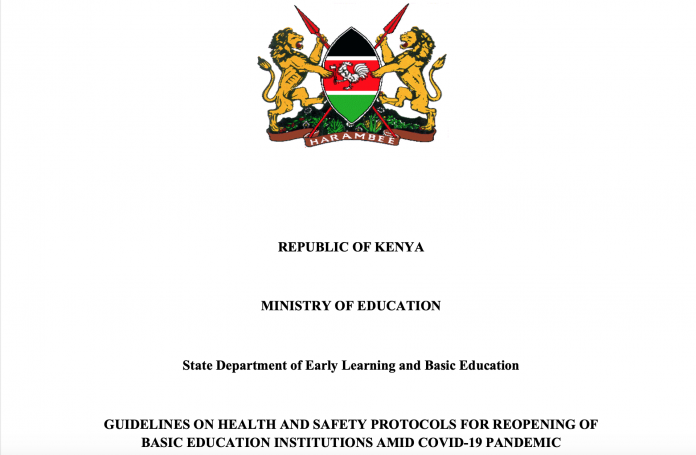The following measures will be implemented to ensure safety in dormitories and other boarding facilities.
- Dormitories/halls of residence shall be adapted to ensure there is no congestion and maintain a distance of at least 1 meter between beds from either side and where possible, boarding will be optional.
- Use of double decker beds must meet social distancing of at least one meter between each occupant,
- Learners/ trainees will not be allowed to share personal items such as slippers, shoes, clothes, towels, toothbrush, soap, shoe brushes, beds etc.
- All surfaces and equipment (light switches, door and window, stair rails etc) in the dormitory should be cleaned and disinfected daily,
- Bed linens and towels should be washed weekly and dried under direct sunlight. Areas surrounding dormitories premises must be clean and free from waste, rubble, and stagnant water to avoid contamination,
- Learners/trainees with disabilities will be provided with appropriate health and hygiene boarding facilities/requirements to ensure they are protected from COVID 19 disease,
- The dormitories including all its facilities and sections, should have good ventilation to ensure circulation of clean air to avoid dampness,
- The dormitories floor must be of appropriate material to enable smooth cleaning and disinfecting and have a good drainage,
- Safe waste collection bins should be adequately provided in the dormitories and must be emptied frequently to keep the environment clean and safe,
- Adequate clean water should be provided in the dormitories for purposes of drinking, bathing, laundry and frequent washing of hands,
- Liquid soap and clean running water should be made available to learners/trainees at all times,
Toilets/Latrines / Washrooms
- All learning institutions should have adequate, clean and well maintained toilets at a ratio of 1 door to 25 girls and 1 door to 30 boys with a urinal.
- Institution management should ensure dormitories environment is free from rodents, insects and other vermin.
- All educational institutions should have adequate toilets which are properly maintained to prevent spread of diseases. Provision of clean and healthier environment for learners/trainees, teachers and non-teaching staff will prevent the spread of COVID 19.
The following guidelines should be adhered to:
- Toilets should be disinfected three times a day.
- Ensure availability of cleaning and disinfection supplies (chlorine, detergents, mop, buckets)
- Door knobs and other frequently touched equipment should be cleaned daily with alcohol based detergents.
- Cleaning the toilets should be done by responsible adults who should be equipped with basic PPEs (boots, gloves, and masks) and trained on safe toilets disinfection practices.
- Provide adequate running water adjacent to all toilets. Liquid soap should be made available to learners/trainees at all times.
- Sanitary disposal bins for female trainees and learners should be provided in the toilets.
- They should have proper cover and pedal to avoid touching by the learners/trainees
- Break times shall be staggered to limit the number of learners visiting the toilet at anytime,
Laboratories
- All institutions should have age and gender appropriate; and disability friendly toilets for learners/trainees and staff.
- Learners/trainees using laboratory at any given time should always observe social distancing of at least 1 meter.
- Laboratory floors, frequently touched items and other surfaces should be frequently cleaned and disinfected.
- Learners/trainees should not share Personal Protective Equipment (lab coats, footwear, gloves, safety goggles and glasses, face shields)
- Laboratory equipment should not be used by unauthorized persons.
- Reagents and chemicals used frequently should be kept under lock and key and their utilization controlled by the teacher or authorized staff.
Administrative offices and Staffrooms
- Offices and staffrooms should not be congested and the staff must maintain social distance of at least 1 meter.
- Furniture should be cleaned and disinfected daily.
- Clean running water and liquid soap/sanitizer should be provided in all offices and anyone entering or leaving should sanitize or wash hands
- Break times shall be staggered to limit the number of teachers in the staffroom/offices at any time,
- Staff meetings shall adhere to social distancing measures .Where possible, staff shall explore other ways of communicating such as memos, mobile chats, text messages and emails.
Library
- Learners/trainees should keep social distance of at least 1 meter.
- Furniture/ shelves should be cleaned and disinfected daily.
- Hand washing facilities should be provided in the library.
Kitchen/ Dining Hall
- Institutional food handlers and cleaners will be required to have personal protective equipment (gloves, apron and facemasks) to promote basic health and hygiene,
- Learners/trainees should wash their hands thoroughly with clean water and liquid soap before and after eating.
- Tables and chairs shall be spaced at a distance of at least 1 meter apart,
- Staggered eating shifts by classes/ cohorts will be considered where population is high to avoid crowding in the dining hall.. Where possible, lunches and afternoon snacks will take place within each class,
- There shall no sharing of food and utensils
- Utensils and cutlery shall be kept clean before use by cooks and learners/trainees,
- Cloth, liquid soap and water for cleaning/ disinfecting kitchen surfaces shall be provided.
The institution shall consider storing each learners/trainee’s food container and utensil separately if possible, so that each learner/trainee uses the same items daily.
9. Food stores must be kept clean by disinfecting surfaces daily.
10. Windows shall be opened at all times where possible to allow aeration.


